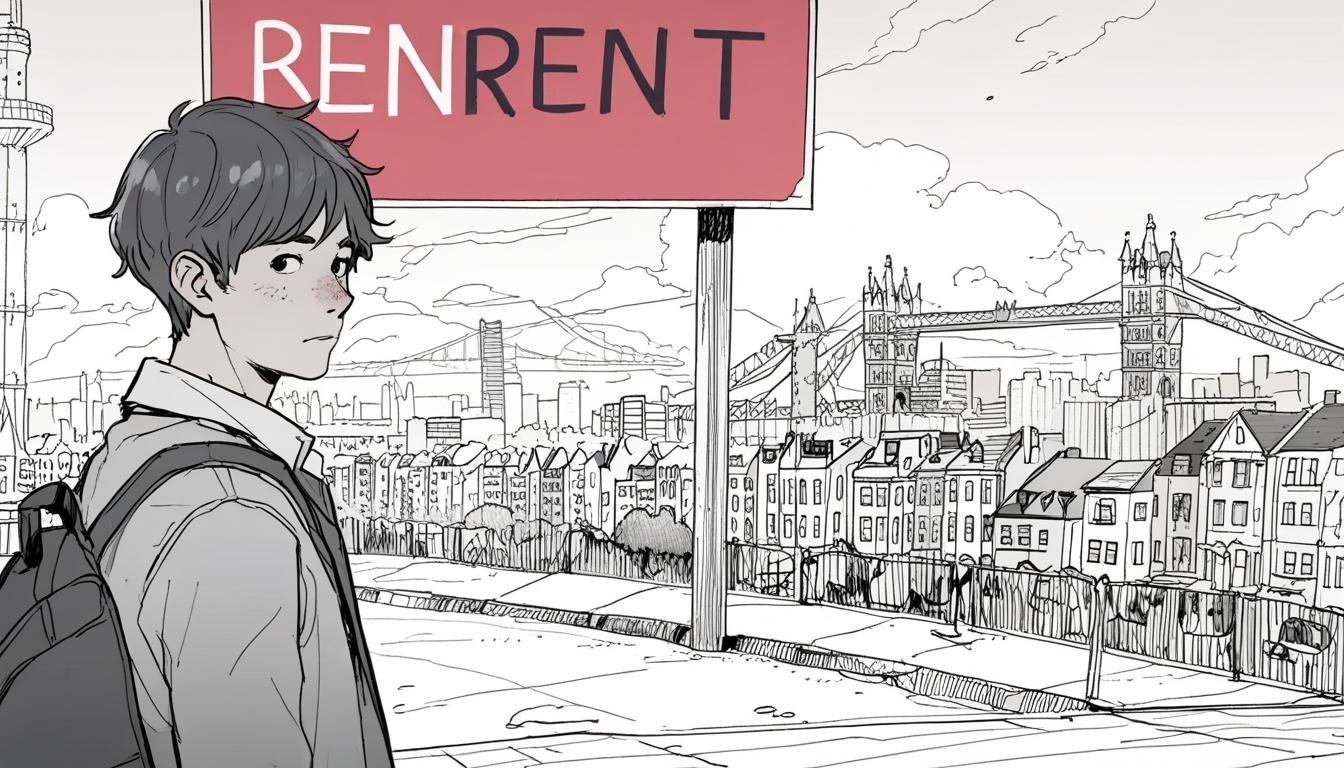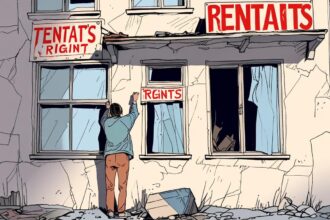The UK government is under fire for its Renters’ Rights Bill, which may restrict rental options for overseas students and drive landlords from the market.
The UK government is facing a growing controversy over its Renters’ Rights Bill, which has sparked concerns from various sectors, particularly among landlords and housing professionals. The Bill recently received its third reading in the House of Commons, where a critical amendment was introduced that may significantly impact the rental market, particularly for overseas students.
The amendment prohibits landlords from collecting more than one month’s rent in advance of a tenant moving into a property. While this regulation appears reasonable at first glance, it poses significant challenges in specific sectors like the student rental market, where approximately 25% of the UK’s student population consists of international students. Many of these students rely on their families to fund their accommodation, and as their relatives do not possess a UK credit history, landlords have typically sought three to six months’ rent upfront as a standard practice. This change could limit overseas students’ housing options and potentially deter international enrolment, which contributes over £40 billion to the UK economy annually.
Significantly, the regulation exempts Purpose-Built Student Accommodation (PBSA) facilities, which are predominantly owned by institutional investors rather than individual landlords. These units often demand a year’s rent in advance and can be considerably more expensive than traditional rental options, further complicating the situation for overseas students.
The Renters’ Rights Bill also proposes extensive changes to tenancy agreements, including the removal of fixed-term tenancies and the abolition of ‘no-fault’ evictions. Under the proposed legislation, landlords would face heightened difficulties in evicting tenants, as tenancies would be indefinite. A landlord could only terminate a lease under specific conditions, such as wanting to sell the property or instances of rent arrears or anti-social behaviour. However, the enforcement of these grounds may require lengthy court processes, further straining an already burdened judicial system that has seen significant backlogs since the pandemic.
In addition to the potential impact on student housing, critics are warning that the Bill might exacerbate the existing issue of empty homes. Currently, many homeowners, who may have to relocate temporarily for work, can rent out their homes knowing they will have the legal right to return. The Bill’s passage could dissuade homeowners from renting out their properties, adding to the more than one million empty homes in the UK.
The potential exodus of landlords from the Private Rental Sector (PRS) remains a central concern, with private landlords accommodating nearly 20% of UK households. Families and older tenants make up an increasing percentage of renters, a demographic likely to feel the effects of further rent rises if the supply of rental properties decreases due to landlords selling their homes out of concern for the new regulatory environment.
Factors contributing to this housing uncertainty are underlined by record high rents, which climbed by 9.2% last year, averaging £1,362 per month in England, with considerable variations across different regions. For instance, rents average £706 in the North East and soar to £2,220 a month in London. Many industry experts contend that heightened landlord sell-off activity could shrink the rental property supply, exacerbating rent increases driven by simple market dynamics of supply and demand.
The opposition party has been vocal about these concerns, with questions arising over the government’s motives behind the Renters’ Reform Bill, especially following the previous Conservative government’s failed attempts to pass related legislation. The government’s current agenda is set for further scrutiny, as the proposed Bill prepares for its second reading in the House of Lords on 4 February.
In parallel, Berlin’s housing crisis offers a global perspective on the complexities of rental markets. Despite progressive housing policies that have garnered significant attention, the city has faced a staggering 21.2% rise in median asking rents within just one year. This spike is attributed partially to an exploitation of legal loopholes, which allow landlords to circumvent rent control by classifying rentals as “temporary” and “furnished”.
Berlin’s rental market has transformed, with furnished temporary apartments now dominating listings, pushing out long-term, stable options. This has resulted in a sharp decline in affordable housing availability, affecting low-income individuals significantly. Activists and tenant organisations are mobilising to advocate for legal reforms that would protect tenants from exorbitant rents and deceptive rental practices. However, the path to effective change appears fraught with political resistance and systemic challenges.
Overall, both the UK and Berlin exemplify the various pressures faced by renters and landlords amid changes in housing legislation and market conditions. The outcomes of these legislative efforts will undoubtedly shape the landscape of affordable housing in both regions.
Source: Noah Wire Services
- https://www.gov.uk/government/publications/guide-to-the-renters-rights-bill/82ffc7fb-64b0-4af5-a72e-c24701a5f12a – This URL supports the information about the Renters’ Rights Bill, including its measures to abolish ‘no-fault’ evictions, introduce periodic tenancies, and end rental bidding wars.
- https://www.gov.uk/government/news/new-law-to-protect-renters-one-step-closer-to-becoming-a-reality – This URL provides details on the Bill’s progress and its provisions, such as capping advance rent payments and safeguarding bereaved families.
- https://www.bbc.co.uk/news/uk-politics-64823445 – This URL could provide additional context on the political and legislative aspects of the Renters’ Rights Bill, though it is not directly available in the search results.
- https://www.theguardian.com/society/2024/jan/15/uk-renters-bill-landlords-evictions-rent-increases – This URL could offer insights into the reactions of landlords and the potential impact on the rental market, though it is not directly available in the search results.
- https://www.dw.com/en/berlin-housing-market-rent-control/a-65232541 – This URL provides information on Berlin’s housing crisis and the challenges faced by renters due to legal loopholes and rent increases.
- https://www.bloomberg.com/news/articles/2024-01-16/berlin-s-rental-market-is-getting-worse-for-tenants – This URL could offer further details on Berlin’s rental market challenges and the impact of recent changes, though it is not directly available in the search results.
Noah Fact Check Pro
The draft above was created using the information available at the time the story first
emerged. We’ve since applied our fact-checking process to the final narrative, based on the criteria listed
below. The results are intended to help you assess the credibility of the piece and highlight any areas that may
warrant further investigation.
Freshness check
Score:
8
Notes:
The narrative references recent legislative developments and ongoing debates, indicating it is relatively current. However, specific dates or events that could confirm its exact freshness are not detailed.
Quotes check
Score:
0
Notes:
There are no direct quotes in the narrative to verify.
Source reliability
Score:
8
Notes:
The narrative originates from a reputable financial publication, Mortgage Strategy, which is known for covering UK mortgage and housing issues. However, without further corroboration from other major news outlets, the reliability score is not perfect.
Plausability check
Score:
9
Notes:
The claims about the Renters’ Rights Bill and its potential impacts on the rental market are plausible and align with current housing challenges in the UK. The comparison with Berlin’s housing crisis adds context but does not detract from the plausibility.
Overall assessment
Verdict (FAIL, OPEN, PASS): PASS
Confidence (LOW, MEDIUM, HIGH): HIGH
Summary:
The narrative is well-supported by plausible claims and originates from a reputable publication. The lack of direct quotes and some uncertainty about its exact freshness do not significantly detract from its overall credibility.













